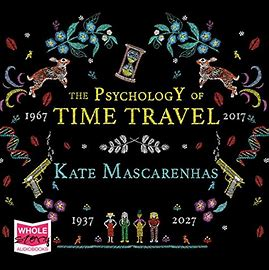After 19352 AD in the Time Patrol timeline, the Time Patrol can operate openly with public offices, recruitment and so on. People would know that time travel, like space travel, occurred even if they themselves were not directly involved with it. Kate Mascarenhas imagines such a society in her first novel, The Psychology of Time Travel. After the first time travel experiments, time travelling becomes a business and the novel shows interactions between characters in a society where time travel is known to occur in the background. I had wondered how Anderson's Time Patrol agents' different experience of time would affect their perception of reality. Mascarenhas points out that time travellers might downplay death since they pass easily between times when their acquaintances are dead and other times when they are alive. The only death that matters to a time traveller is her own. In Audrey Niffenegger's The Time Traveller's Wife, Alba says, "My daddy's a time traveller. He's not dead all the time."
Mascarenhas uses "timeline" to mean "period." Her Glossary informs us that Tipler cylinders could not accommodate time travel into the future. In Anderson's The Avatar, T machines are used for futureward travel not only back to the travellers' starting point but also, I think, beyond that.

3 comments:
Kaor, Paul!
I was amused by Alba's line about her father: "He's not dead all the time"!
As for T machines, did Tipler refine his work so that he no longer thought T machines could travel into the future? Or does Anderson's use of them in THE AVATAR still reflects Tipler's conclusions?
Ad astra! Sean
Don't know.
BTW since you mention Avatar & T-machines, you might find what I wrote here of interest.
https://www.quora.com/Is-it-possible-to-disprove-the-existence-of-a-planet-on-the-same-orbit-as-Earth-but-at-a-180-phase-without-using-any-data-obtained-by-satellites/answer/Jim-Baerg-2
Post a Comment